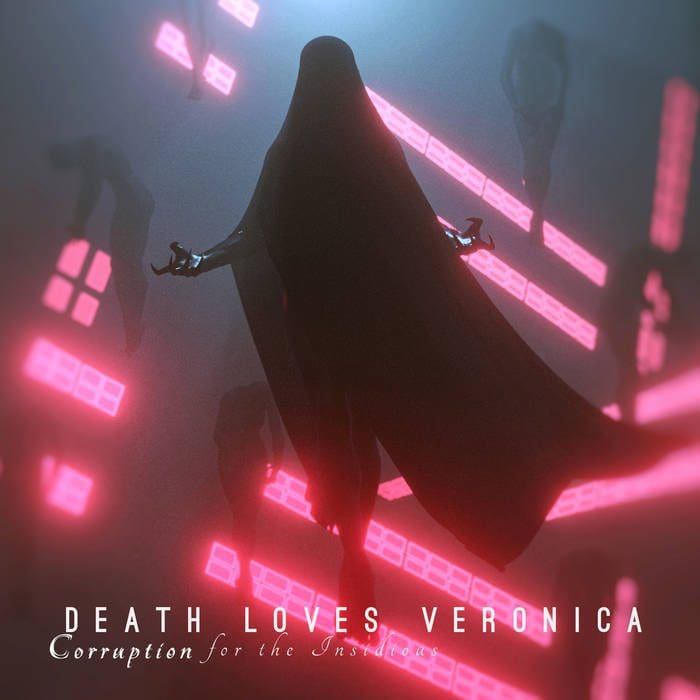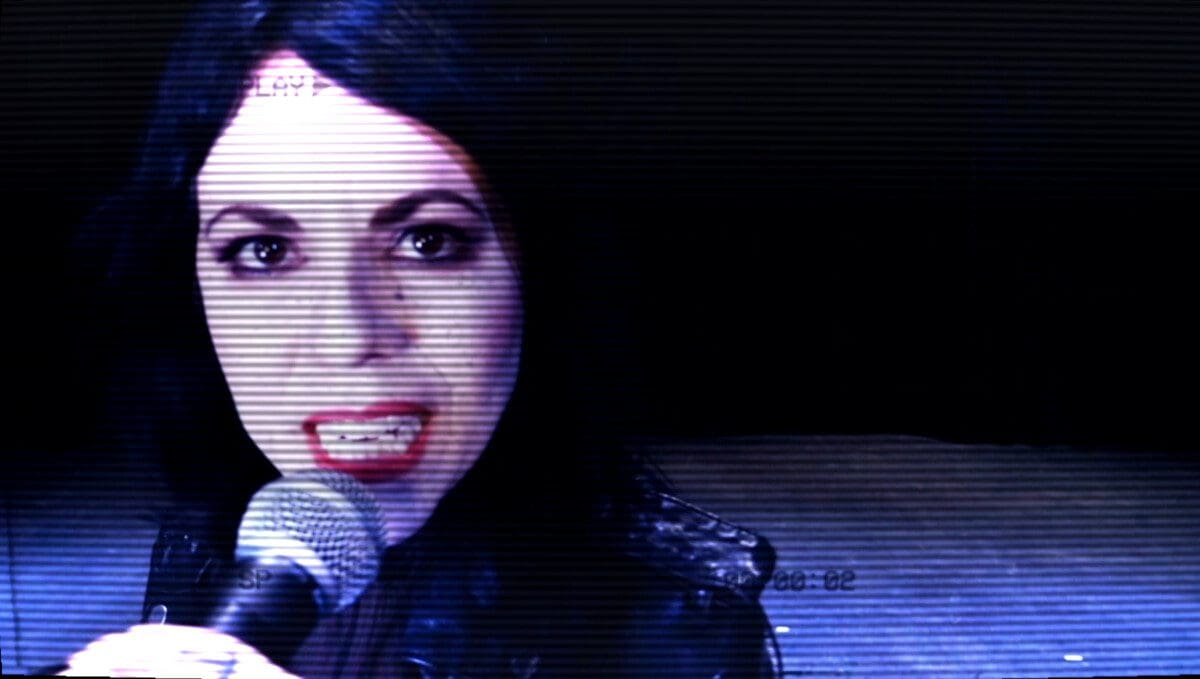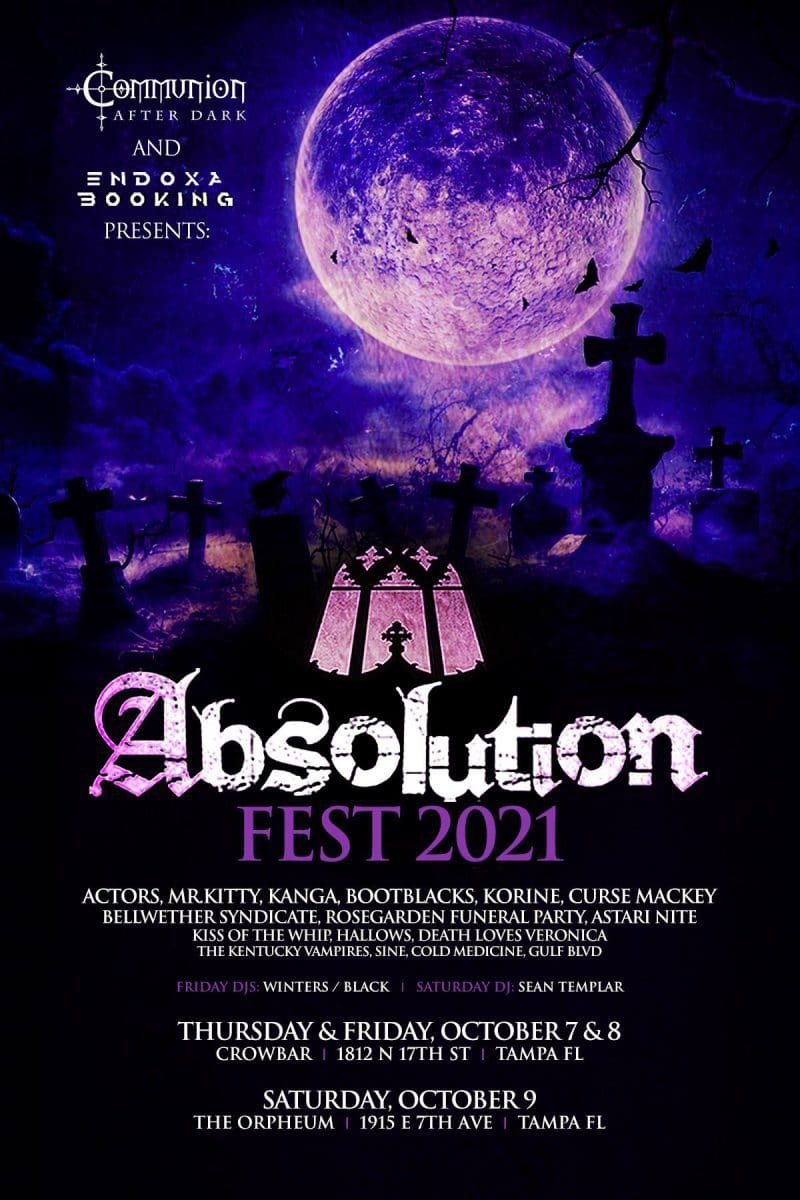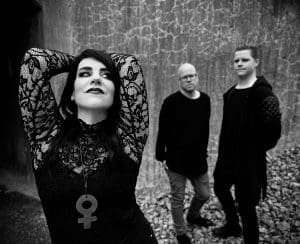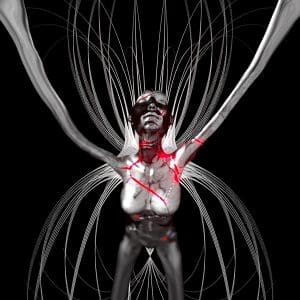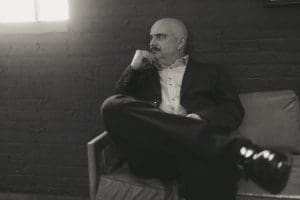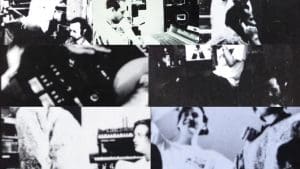‘Click Interview’ with Death Loves Veronica: ‘My Artistic Endeavors Were A Form Of Self-Therapy’
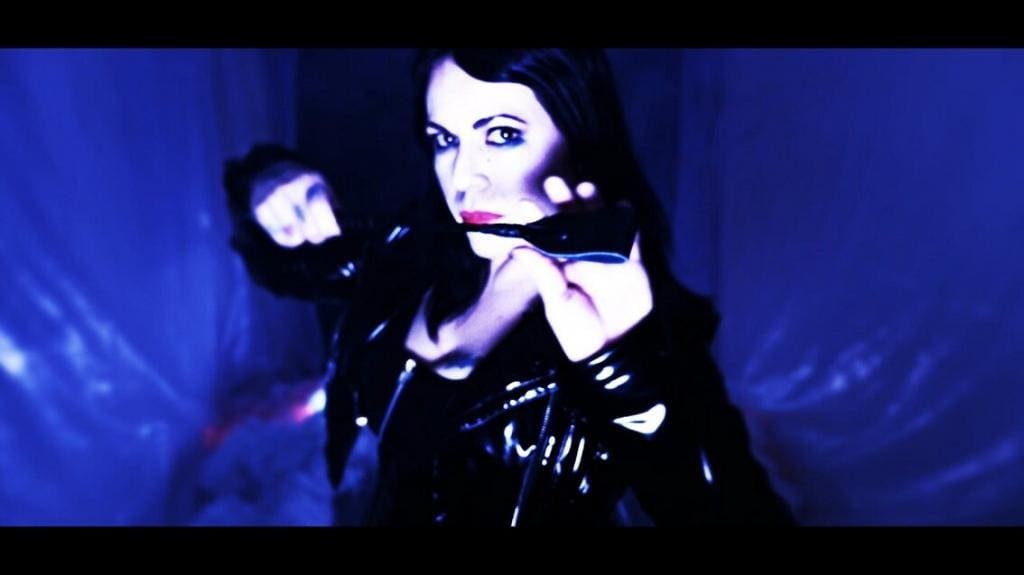

American artist Veronica Campbell this year released her new album “Chemical”. The work has been introduced as a ’perverse, dark-electronic journey infused with themes of nihilism, inhibition, and deception’. It however is an intimate composition, which will appeal for lovers of Minimal-Electro/Wave music with an Experimental touch on top. The songs are mixing analogue electronic treatments and guitar with the cold, sensual vocals of Veronica. “Chemical” has been released by Cold Transmission Records, which clearly has a nose for talented artists. I’d an interesting chat with Veronica Campbell.
(Courtesy by Inferno Sound Diaries)
Q: How did you get in touch with Electronic music and how do you see yourself as an artist?
Veronica: I have been interested in Electronic music since early childhood. I received a keyboard at the age of 5 and began to write music then, making up what I thought notes looked like on small papers I collected. That was in England, where I also had my first solo singing performance at a school concert -it felt totally natural to me. When I returned to the United States, I began to perform in a Punk-Rock band at the age of 15. Our shows were at local bars and places teenagers shouldn’t have been allowed to play, but we drew a crowd and it was a lot of fun. By the age of 19, I was in a Death-Rock band. I was introduced to Industrial music around this time as well, (and dated an Industrial musician I won’t name, but who influenced me greatly) and it has always been a part of my life. I think these various forms of music helped shape who I became much later as a solo artist.
Q: Your new album “Chemical” has been introduced as a ‘perverse, dark-electronic journey infused with themes of nihilism, inhibition, and deception’. Can you gives us more details about this quote and how did you finally transpose themes into music?
Veronica: My previous albums felt, to me, like they were all over the place. The first two were actually EPs, the first being more of a demo. The third album, “Lucid Dreams”, was very much an experimental piece. I think I was still feeling out how I wanted to sound as a solo artist. I felt some pressure to remain ‘feminine’ vocally and composition-wise, when I didn’t really want to. So with “Chemical”, I recorded it without fear and told myself that I would release it myself because I was pretty sure no label would be interested in it and how bold it was. But labels were interested, and I was fortunate to have Cold Transmission have a listen to it.
I very intentionally created “Chemical” with a theme in mind, but one that lives in duality -a difficult thing to explain in detail, but many of the songs have two entirely different meanings, but still relate to the theme itself, or actually creates two themes.
Q: You composed this album right after recovering from an intensive health-related surgery where the use of your arms was limited. How did that happened and in, which way did music became a kind of therapy and/or cure?
Veronica: I had to have three masses/tumors removed from my breasts and some tissue from around the breast area in October of 2020. Two of the incisions were under both arms, and very large. I still cannot extend my arms fully without discomfort. The recovery process was painful and I was medicated to help get through it. Something about that procedure helped create the bravery to compose “Chemical” without those fears of being judged. I was angry at the world at times, at existence. This was not my first surgery for this issue, so I felt some bitterness at the time. It helped the mood of the album.
Unfortunately, because I have been honest about my medical experience, I have sometimes been made fun of because of it (trolled). It’s been rare, but there are perhaps those in the scene who are not very welcoming of a woman who can produce and record her own music in the style that I do? But most people have been very supportive and seem to understand the direction and message of the music.
Q: The sound of “Chemical” has something pretty retro-like and into minimalism. What does it say about your sources of inspiration and eventually references when it comes to this style of music?
Veronica: I actually record more parts, sounds, into a song originally, then remove parts as I begin to mix the track. They become minimal as I experience how each instrument sounds against the other and keep what I feel makes the most sense. I feel that in the emptiness of a song, the ear can experience what might have been missed if more was present. I think having grown up on Punk-Rock, 90s Industrial, and Death-Rock keep me centered somehow. I also listen to Black-Metal and 80s Metal at times. I try not to listen to anything too similar to what I’m trying to do myself for fear of being influenced a little too much by it.
Q: You released several clips for the new album and here again I noticed a pretty minimal- and cold atmosphere. What did you try to express by the clips and what’s their importance and impact today?
Veronica: The cold feeling was exactly what I wanted people to hear. I have sensory processing issues. Maybe that influenced “Chemical” more than I had intended, but I’m glad it did. I’m very sensitive to light, smells, and sound and anything that overwhelms my senses can trigger a migraine. I take medications for this, but also have to live a pretty sheltered life to protect my senses. Basically, I’m not neuro-typical at all.
Q: You’re not only a musician, but still a novelist and film director. Artistic expression clearly takes an important part of your life so what do you consider as your main accomplishments? Is there a kind of common thread between all your different activities? And what are your further plans?
Veronica: I plan to continue to focus on music. It keeps me at the happiest I am capable of being. All of my artistic endeavors were a form of self-therapy, to help focus my OCD and sensory issues. Music for me is compulsory, it must be created, if not for others, for myself. Novels were what I spent my time on while my children were small and needed more of my time. People have asked me why I don’t write like I used to because I won awards at it, and with short films.
Music was always my first passion and as soon as my children were teens, I rushed back into it. Filmmaking flows into my music videos now, and the albums, to me, are very similar to novels in audio form. It all connects. Everything does somehow and I find that part of life very interesting.
Since you’re here …
… we have a small favour to ask. More people are reading Side-Line Magazine than ever but advertising revenues across the media are falling fast. Unlike many news organisations, we haven’t put up a paywall – we want to keep our journalism as open as we can - and we refuse to add annoying advertising. So you can see why we need to ask for your help.
Side-Line’s independent journalism takes a lot of time, money and hard work to produce. But we do it because we want to push the artists we like and who are equally fighting to survive.
If everyone who reads our reporting, who likes it, helps fund it, our future would be much more secure. For as little as 5 US$, you can support Side-Line Magazine – and it only takes a minute. Thank you.
The donations are safely powered by Paypal.


